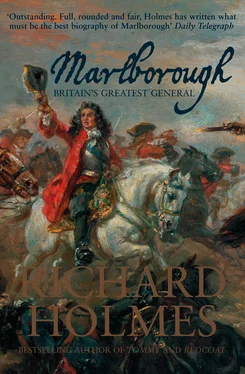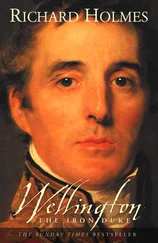When Feversham reached the field he divided his horse into two groups, and sent them out across the two plungeons to threaten the rebel flanks, probably ordering them not to charge until it was light enough for them to see what they were doing. Oglethorpe, on the right, spurred on anyhow, collided with a party of rebel horse and was then beaten off with loss when he charged one of the rebel foot regiments. While the horse were getting out onto the moor, Churchill shifted Trelawney’s and Kirke’s, who had nothing to shoot at, across to the right, although by the time they came up with Dumbarton’s the sun was beginning to rise and the battle was entering its last phase. With daylight reducing the risk of further ‘friendly fire’ incidents the royalist horse charged the retreating rebel infantry. The guns were swiftly overrun, and the rebel foot, struggling off as best it could, was soon swamped. Churchill quickly pushed the grenadier companies of his infantry across the Bussex Rhine to support the horse. The grenadiers of Dumbarton’s took Monmouth’s own banner, whose motto Fear nothing but GOD might have seemed ironic to the rebel survivors now running for their lives to escape the broadswords of the pursuing horsemen.
Oglethorpe was sent post-haste to London with news of the victory: his mistakes had not cost him Feversham’s favour. Churchill rode straight for Bridgwater, which opened its gates at once. The settling of accounts began early: on 7 July a Dutch gunner and a deserter who had fought for the rebels were hanged in front of the whole army. That hard man Percy Kirke, now appointed brigadier to command both his own regiment and Trelawney’s, was left behind to secure prisoners and ensure that the dead were properly buried. Sedgemoor had cost the royal army about thirty killed, and another 206, most of them from Dumbarton’s and 1st Foot Guards, were to receive pensions for wounds received. At least 1,400 rebels had been killed in the fighting and pursuit.
Monmouth was captured, dressed in shepherd’s clothes, on 8 July. He had already been condemned by Act of Attainder, but cravenly begged the king for his life: James observed that he ‘did not behave himself so well as I expected nor as one ought who had taken upon him to be king’. 77 He had recovered his courage by the time he was taken to Tower Hill for execution the next day but, despite a substantial tip of six guineas, with the promise of another six from a servant after the job was done, Jack Ketch, the executioner, failed to kill him with his first three hacks. He then threw down his axe and declared that he could not go on, but the furious crowd urged him to put Monmouth out of his misery. Another two blows failed to sever the duke’s head, and the executioner eventually worried it off with his knife. Ketch had to be escorted from the scene to protect him from the mob.
The trials of captured rebels began at Winchester in late August, and thereafter the ‘Bloody Assizes’, supervised by George, Lord Jeffreys, the lord chief justice, worked its sanguinary way across the West Country. Something over three hundred rebels were hanged, drawn and quartered, their executions taking place across the region and their quartered bodies distributed even more widely. Almost nine hundred were sentenced to transportation to the West Indies as unpaid labourers for four years, a term of exile soon increased to ten years. Churchill’s biographers whisk him back to London immediately after the battle, but in late September Jeffreys wrote to tell the king that Churchill, ‘who was upon the place’, would tell him what had been done to snuff out rebellion in Taunton, a comment that makes sense only if Churchill had first witnessed Jeffreys’ bloody handiwork and then returned to London. 78 The property of traitors was forfeit to the crown, and some of it was passed on as reward to the victors of Sedgemoor. Feversham, made a Knight of the Garter, received the estates of the executed Alice Lisle, and Churchill was given the very considerable property of John Hacker, captain of rebel horse and prosperous Taunton businessman.
Churchill emerged from the campaign with great credit. Of his possible rivals, Theophilus Oglethorpe had not fulfilled his promise as a cavalry leader, and Percy Kirke was to establish an unpleasant (though probably exaggerated) reputation for casual brutality as he snuffed out the embers of the rebellion with his tough Tangier veterans, known ironically, from their paschal lamb emblem, as Kirke’s Lambs. However, Churchill’s role in the battle became politicised almost immediately, and too many of his biographers have taken contemporary polemic for historical fact. Feversham, a royal favourite and a Frenchman by birth, was not popular at a time when the French were seen as natural enemies. His depiction in the Duke of Buckingham’s play The Battle of Sedgemoor (which manages to combine both anti-French and anti-Irish prejudice) is valuable only as evidence of perennial English suspicion of Johnny Foreigner.
A pox take de Towna vid de hard Name: How you call de Towna, De Breeche? … Ay begarra, Breechwater; so Madama we have intelegenta dat de Rebel go to Breechwater; me say to my Mena, Match you Rogua; so we marsha de greata Fielda, beggar, de brave Contra where dey killa de Hare vid de Hawk, beggar, de brav Sport in de Varld. 79
Feversham was a naturalised Englishman, had lived in England for over twenty years, and spoke the language well.
Thomas Lediard’s whiggish biography of Marlborough (1736) quotes an unknown author who affirms that Feversham ‘had no parties abroad, he got no intelligence, and was almost surprised, and like to be defeated, when he seemed under no apprehension, but was abed without any care or order’. We have already seen how Feversham’s precautions were wholly professional. Had Oglethorpe not shifted the crucial picket Monmouth’s advance would have been detected sooner, but as it was Compton’s screen did precisely what was expected of it. The Reverend Andrew Paschall heard from a church official in Westonzoyland that an unnamed lord sought a local guide to take him away from the battle, but it is impossible to link this firmly to Feversham, though some have tried. There were repeated suggestions that Feversham, a Frenchman and thus by definition a fop, took a long time to dress after the alarm was given and insisted on breakfasting before leaving his quarters. The most that we can say is that he had been injured by a falling timber in one of the Whitehall fires and had subsequently been trepanned: this might have made it harder for his servants to wake him.
Winston S. Churchill claimed that:
Nothing could free the public mind from the fact that Churchill had saved and won the battle. The whole Army knew the facts. The officers included the Household troops, the Guards, and all the most fashionable soldiers about the court. They all said what they thought. Feversham’s martial achievements became a laughing-stock … The impression that this slothful foreigner was slumbering on his couch and that the vigilant Englishman saved the situation had more truth in it than the popular version of many historical events. 80
If these well-placed officers did indeed know discreditable facts about Feversham, and trailed them about court, we may wonder why James appointed him to command his army in 1688 when the threat was infinitely more serious.
Feversham does not have to be a villain for Churchill to be a hero. Whatever the rumours of drunkenness or lack of vigilance, the royal infantry, his prime responsibility as the army’s second in command, was camped in good order with well-understood alarm drills, and Dumbarton’s provided an alert grand guard which established the right marker for its battle line. Once the fight was joined, Churchill shifted dragoons to both flanks, and paid special attention to his right, where Dumbarton’s Scots were under pressure. He moved his two left-hand regiments off to the right some time afterwards, but by this time the rebel attack was broken. John Tincey, whose recent scholarly account of Sedgemoor comes as close as we can hope to being definitive, reckons that: ‘By the time Feversham arrived the battle was won and he had little to do but, with the dawn, to organise the pursuit of a beaten enemy … Sedgemoor may not have been John Churchill’s most spectacular victory, but it must rightfully be considered to be his first.’ 81
Читать дальше












